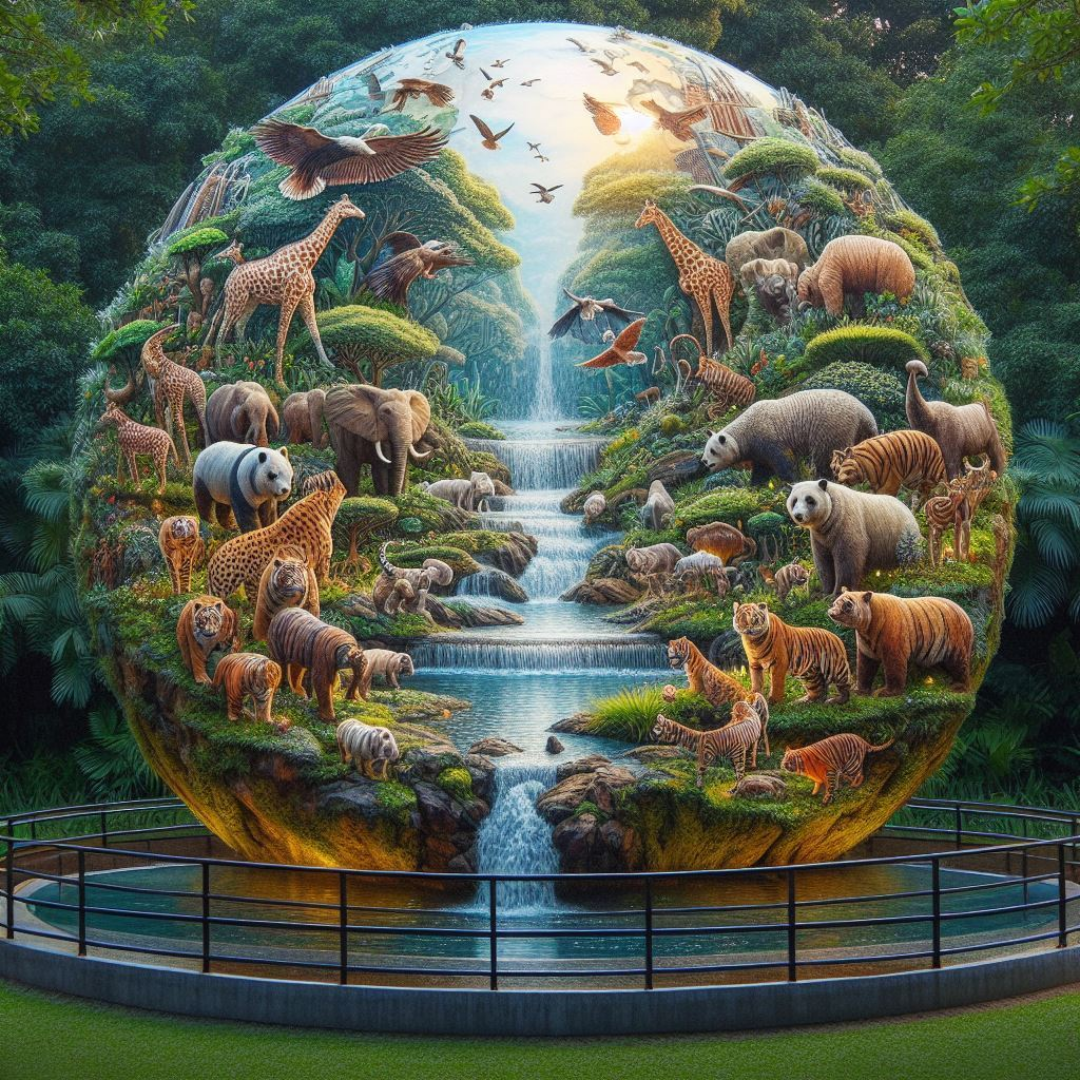IUCN has officially recognized the invaluable contributions of botanic gardens, aquariums, and zoos worldwide in their collective mission to safeguard wild animals, fungi, and plants.

The International Union for Conservation of Nature (IUCN) has officially recognized the invaluable contributions of botanic gardens, aquariums, and zoos worldwide in their collective mission to safeguard wild animals, fungi, and plants. The acknowledgment highlights the significant role these institutions play in environmental conservation.
In Wellington, New Zealand, the city’s parks, gardens, and zoos have been particularly commended by the IUCN for their outstanding conservation work. Councillor Teri O’Neill, Chair of Wellington City Council’s Kōrau Mātinitini | Social, Cultural, and Economic Committee, welcomes this news, emphasizing the city’s commitment to environmental stewardship. Institutions such as Wellington Zoo, Ōtari-Wilton’s Bush, the Botanic Garden ki Paekākā, and Zealandia consistently receive local and international recognition for their contributions to the protection and preservation of the environment.
Councillor O’Neill states, “As caretakers of this land, we proudly punch above our weight in conservation matters, and the results are on our doorsteps with native bird numbers soaring, a green belt the envy of the world, threatened plant species being propagated, protected and preserved, and marine reserves burgeoning with sea life.”
The IUCN’s Position Statement acknowledges the pivotal role these institutions play in conservation work, including veterinary science, wildlife reintroduction and translocation, research, education, community engagement, and fostering access to nature-based experiences. IUCN President Razan AI Mubarak emphasizes the importance of well-managed captive populations in zoos, botanic gardens, and aquaria for the recovery of species in the wild.
Wellington Zoo, as a not-for-profit organization, actively engages in conservation projects at local, national, and international levels. The zoo’s veterinary team rehabilitates injured native animals locally, supports local conservation grants, and partners with global organizations, such as Mountain Spirit in Nepal, to protect vulnerable Snow Leopard populations.
Karen Fifield MNZM, President of the World Association of Zoos and Aquariums and Chief Executive of Wellington Zoo, expresses excitement at the official recognition from the IUCN SSC, noting that it signifies global acknowledgment and support for their work.
Aligned with the mission of Wellington Zoo, Wellington Gardens, including Ōtari Native Botanic Garden, directly contributes to plant conservation efforts at various scales. The Gardens cultivate over 330 species of threatened plants from across Aotearoa, with many collections contributing to national conservation projects. Notably, the Gardens’ horticultural expertise plays a crucial role in preserving plants that are extinct in the wild or rarer than kakapo.
An exemplary case is the recent propagation of the rare rush Juncus holoschoenus var. holoschoenus. Collected by NIWA staff and sent to Ōtari for storage and propagation, this species is now extinct in the wild. The Department of Conservation (DOC) Rangers, in collaboration with Ōtari, recently returned 64 propagated plants to their native frost flat wetlands.
The IUCN SSC encourages government agencies and entities worldwide to strengthen collaborations with botanic gardens, aquariums, and zoos. The unified efforts of these institutions are seen as pivotal in the global mission to prevent species from facing extinction.
The official recognition from the IUCN underscores the crucial role of these organizations in biodiversity conservation and highlights their efforts as essential contributors to a sustainable and thriving planet.